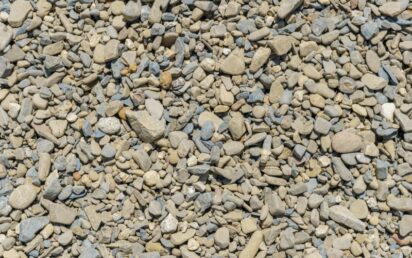Running operations in the minerals, mining, quarrying or construction industries involves weighing up the cost and practicality of every decision. One of the biggest considerations is whether to buy aggregate plant equipment outright or hire it for a set period. Many businesses also turn to full-service contracting for even greater flexibility. With aggregate processing plants used for crushing, washing and screening often carrying a high price tag, the decision can have a real impact on budgets and timelines.
Here, we look at some of the most common scenarios where hiring or contracting makes more financial sense than purchasing new or used machinery.
Short Projects That Do Not Justify Ownership
If a job has a clear start and end date or is unlikely to repeat, hiring equipment can save time and money. Whether you are clearing land, preparing materials for a single construction project or bridging a gap in your plant availability, hiring means you get the right kit when you need it. There is no need to budget for storage or long-term maintenance, and no need to sell the equipment once the job is complete.
Hiring also removes the risk of holding onto underused machines. If your work changes seasonally or from one contract to the next, the ability to scale up or down as needed is a clear advantage.
Making Better Use of Capital
New aggregate processing equipment requires a large upfront investment. Even used machinery demands a considerable outlay, and the ongoing costs of maintenance and insurance. For many businesses, particularly those working on tight margins or with limited cash flow, hiring provides access to reliable, high-performance machinery without putting strain on the budget.
Being able to forecast expenses more accurately is another plus. Hire contracts typically involve clear terms and fixed rates, helping with financial planning. Rather than tying up capital in equipment that might sit idle, funds can be directed to areas of growth, staffing or operational improvements.
Avoiding Unexpected Repairs and Delays
Breakdowns on site can lead to delays, missed deadlines and additional costs. One of the advantages of hiring equipment is that service and maintenance are usually handled by the supplier. If a fault develops, the equipment can be repaired or replaced quickly, keeping downtime to a minimum.
For contracting businesses or those under tight deadlines, this support can make a real difference. Downtime not only affects your immediate job but can have a knock-on effect on supply chains and follow-on trades. Hiring provides peace of mind that you will have backup if something goes wrong.
Flexibility for Different Types of Work
Sites differ, materials differ and project goals differ. What is needed for a dry, rocky site might not suit a waterlogged or clay-heavy environment. Hiring gives you the option to choose specific aggregate crushing equipment, screening or washing equipment that suits the material and scale of each job.
This is especially useful if you work across regions or industries. Being able to adapt your setup to the job avoids forcing one piece of equipment to do everything. It also reduces wear and increases efficiency by matching the machine to the task.
Trying Before You Buy
For companies considering investing in new machinery, hiring offers a practical way to test performance on the ground. Rather than relying on spec sheets and assumptions, you can run the plant on your own site, with your own material and team. This real-world trial gives a clearer picture of how well the equipment fits into your operation.
If it performs well and adds value, you can choose to buy it later. If not, there is no long-term cost or commitment. It also gives you time to train your team and understand any service requirements before making a full purchase.
Full-Service Contract Work for Turnkey Support
Contracting goes one step further than hiring. A full-service contract means the supplier provides the machinery, the operators, maintenance, logistics and technical support. This is ideal for businesses working in remote locations or on complex jobs that require specialist knowledge.
With a contract in place, you benefit from experienced staff who know the equipment and can get the best results from it. It also means one point of contact for everything, from transport to servicing, and fewer surprises in terms of cost or delay.
Conclusion
Whether it be aggregate screening equipment, crushing, washing, or something else, hiring or contracting is not just for those without access to capital. It is a smart move for any business that wants to reduce risk, keep costs manageable and respond flexibly to changes in workload or job type. By taking a project-by-project view and comparing the real cost of ownership to the benefits of short-term use, it becomes easier to make decisions that support both your budget and your long-term success.
From short-term site work to long-running quarrying contracts, the right hire or contract arrangement can keep your operations moving without compromise.


